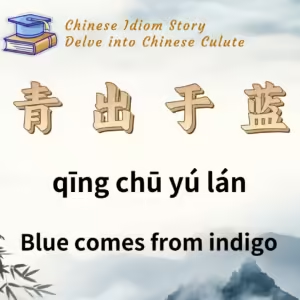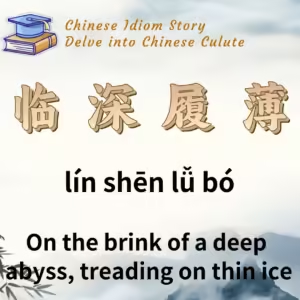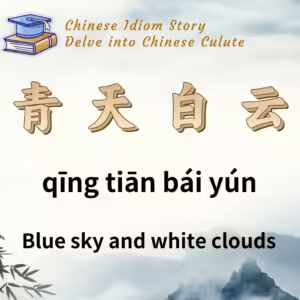
Chinese Idiom: 青出于蓝 (Qing Chu Yu Lan)
English Translation: Blue comes from indigo
pīn yīn: qīng chū yú lán
Idiom Meaning: This idiom is used to describe a situation where the student surpasses the teacher, or the successor exceeds the predecessor. It emphasizes the idea that the next generation can improve upon the previous one.
Historical Source: Xunzi · Encouraging Learning (《荀子·劝学》)
Idiom Story:
In the philosophical text Xunzi, written by the Confucian thinker Xunzi (Xun Kuang), there is a passage that says:
“青,取之于蓝,而青于蓝;冰,水为之,而寒于水。”
“Blue is extracted from indigo, yet it is bluer than indigo; ice is made from water, yet it is colder than water.”
Xunzi uses this metaphor to emphasize that through continuous learning and refinement, students can surpass their teachers, just as the color blue derived from the indigo plant can become deeper and richer than the plant itself.
The idiom is also supported by a story from The History of the Northern Dynasties (《北史》). In this story, during the Northern Wei dynasty, a man named Li Mi was known for his dedication to learning. He became a student of the renowned scholar Kong Fan. Initially, Kong Fan was much more knowledgeable, but over time, due to Li Mi’s hard work and diligence, Li Mi’s scholarship surpassed his teacher’s. There were even times when Kong Fan had to seek advice from his former student.
Li Mi’s fellow students created a rhyme to celebrate his achievement:
青成蓝,蓝谢青;
师何常,在明经。
“Blue comes from indigo, but indigo fades before blue;
A teacher need not always be superior, for wisdom lies in understanding the classics.”
This story further illustrates the concept that through persistence and study, students can exceed their teachers, and the idiom “青出于蓝” was derived from these ancient texts.






